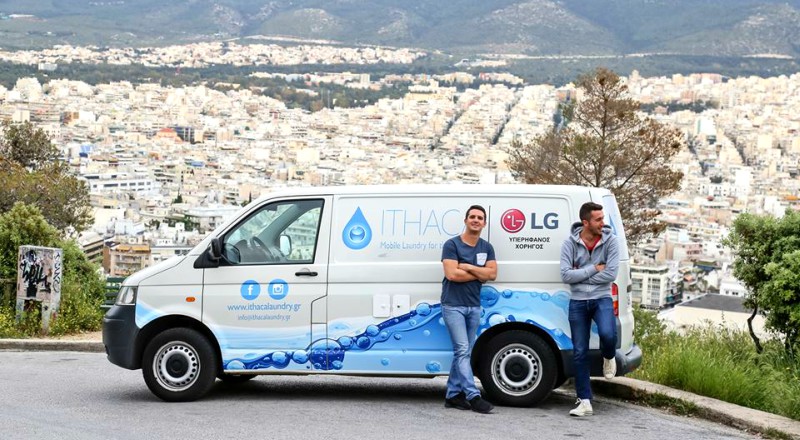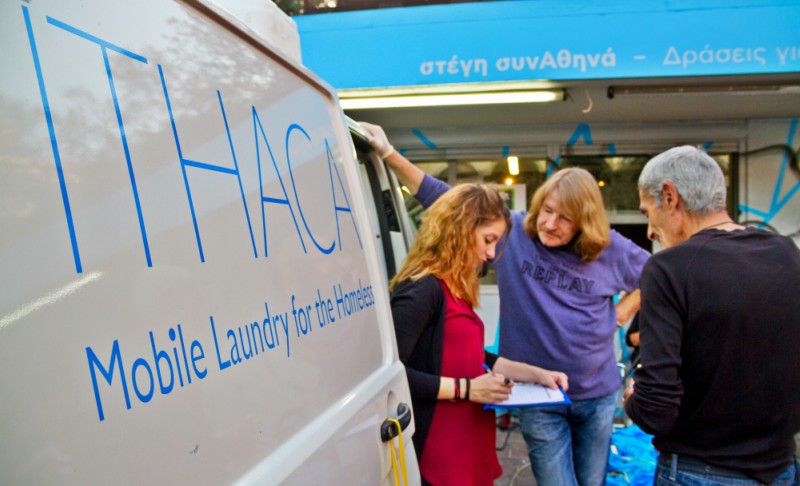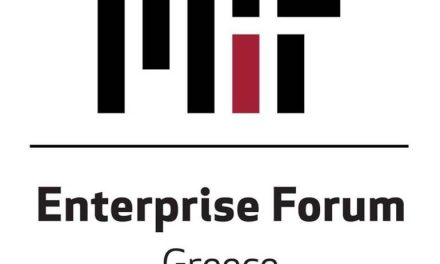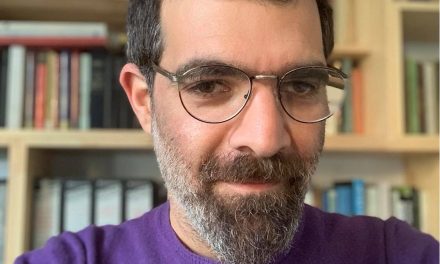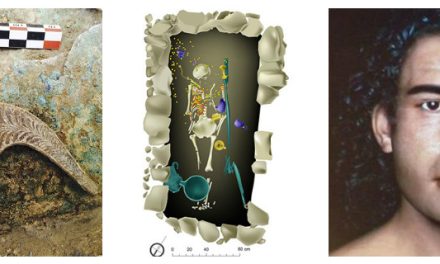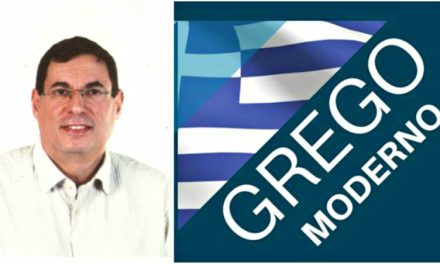Ithaca laundry is a mobile laundry service aimed at homeless people in Athens: a van fitted with washing machines and tumble dryers, collecting unwashed clothes from people residing in the streets and returning them clean and dry. It has been founded by a group of young people and operates thanks to the support of partners and sponsors and to the work offered by volunteers. The Operations Manager for Ithaca, Dimitra Kountourioti, spoke* to Greek News Agenda about this initiative, which was recently featured in a short documentary film by Nick Holland for BBC World Hacks.
When and how was the mobile washer launched? How was this idea concieved and to whom does the initiative belong?
The organisation was founded in 2015 by a group of three people, Thanos Spiliopoulos, Fanis Tsonas and Andili Rahoutis. Thanos was inspired by a similar initiative in Australia and, given the socio-economic situation in Greece, he decided to create a mobile washer for the homeless of Athens. We ran as a pilot programme from April to December 2016, and since January 2017 we have been operating regularly, 5 times a week.
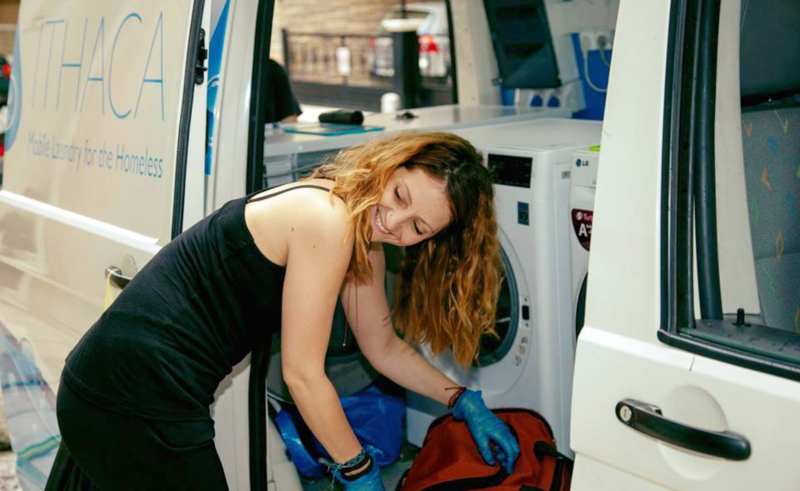 Dimitra Kountourioti
Dimitra Kountourioti
How did you join the group?
I started in January 2017 as Managing Director because Thanos and Fanis had to perform military service. Since then, I have taken up the duty of running the day-to-day management and operation of the organisation on all levels, and the founding group has a predominantly advisory role and is actively involved in the decision-making process (board of directors).
How does it actually work? How do people who are in need of your services become aware of your actions?
At this point, we operate 5 days a week, based on a specific schedule and timetable. The van has 2 washers and 2 tumble dryers, washing takes 40 ‘and drying another 45’; those who come to us give us some contact info and get a queue number. Those benefitted by the service have come to know us and there is a steady turn-out.
At each spot, we work together with partners and groups that provide additional services to the people we tend to (food, medical assistance, psychological support, etc.), so it’s easier for people to know about us.
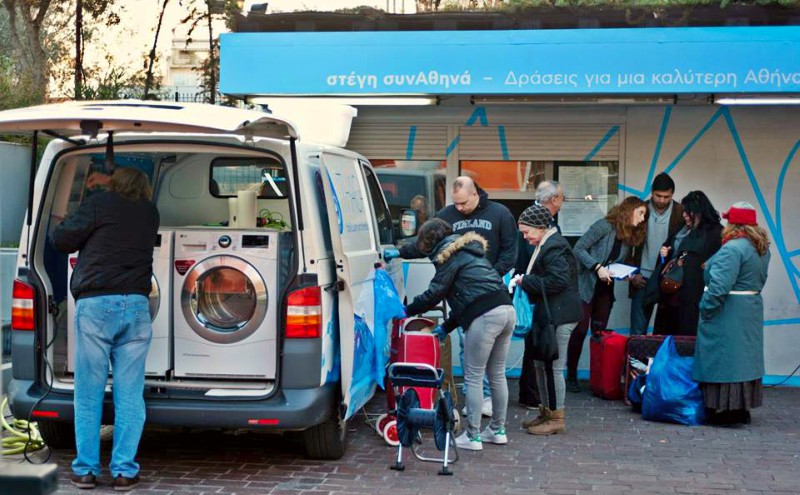 How many are now involved in the project’s operation? Does the team include only volunteers?
How many are now involved in the project’s operation? Does the team include only volunteers?
Since January 2017 we have created, apart from my own post, two more part-time jobs that were given to people from socially vulnerable groups. Specifically, our first employee, Christos, was benefiting from our services at Athinas street, where we operate every Wednesday and Sunday.
Our goal is to give them an actual job opportunity, providing them with the necessary support for a period of 10-12 months so that they can be reintegrated into society and the workplace, and become able to get a full-time job. In April 2018, Christos already found a new job and two new employees were recruited to fill his position.
Of course, we also have a team of 15 volunteers who either run the mobile unit every Sunday, or work in other positions (photographer, driver, social media manager, administrative support, etc.). Volunteers are vital for our operation, because they are active members of civil society and play an important role in exposing and fighting against the social exclusion faced by the homeless.
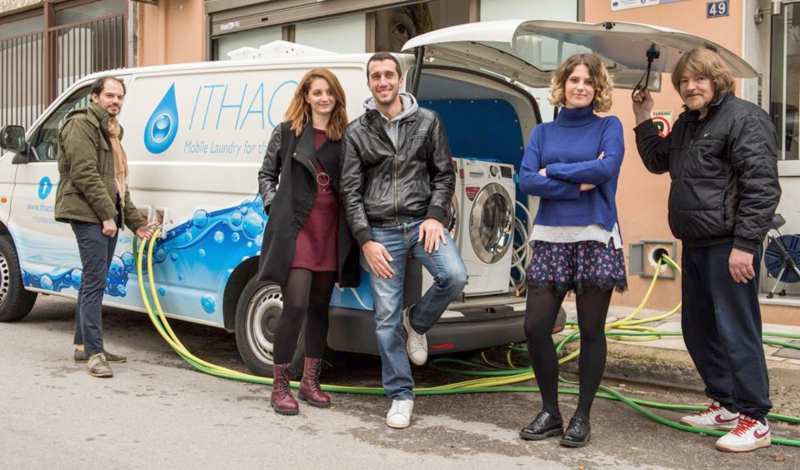 How do you manage to provide these services for free? Have you received support from private and / or state institutions?
How do you manage to provide these services for free? Have you received support from private and / or state institutions?
Since the beginning we have received support by sponsors and donours. Also in the spots where we operate, water and electricity are provided by partners (organisations and municipalities). The main sponsor is the company LG, which, in addition to providing the appliances we use in our mobile unit, has also supported us financially to create the first job positions.
We have a lot of support from other companies (P&G, SANITAS, ENDLESS, COSMOTE, etc.) and we are trying to attract more donations from institutions and individuals. We must also mention that an important factor in our development was the fact that for our first 2 years of operation, our offices are hosted by HIGGS, an NGO which aims to support and reinforce other non-profit organisations.
How many vans do you have now? Is the existing number sufficient or are you hoping for further additions?
At this time we have a mobile unit with two washers and two tumblers and we operate 5 days a week. At present, it is sufficient for the number of people who seek our services. Soon we hope to add two more operating spots to reach even more people in need of our services, and then we want to carry out a survey on their needs as well as on possible new operating spots.
In what ways can one contribute to your project?
One can either offer financial support or work as a volunteer. Those who are interested can find more information on our website and contact us via email (info@ithacalaundry.gr).
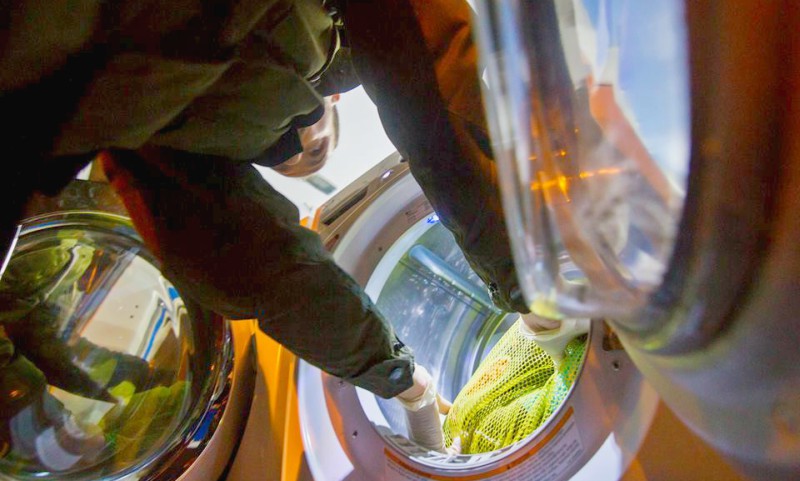 What is the most valuable lesson or experience you have gained from the project? Is there any advice for someone who would like to launch a similar initiative?
What is the most valuable lesson or experience you have gained from the project? Is there any advice for someone who would like to launch a similar initiative?
I think I learned my most important lesson by people who have worked for our group, who were long-term unemployed and either were homeless or faced the risk of being. I saw how important it is to give someone in dire need the opportunity to reintegrate and become an active member of society. We witnessed obvious changes in the psychological state and self-confidence of our first two employees already within their first 3-4 months with us. They now show more faith in themselves and have regained the courage to try and improve their everyday life.
Also, providing cleaning services to people who do not have access to something most of us take for granted, proves the great importance of hygiene in reclaiming one’s dignity and self-esteem. One recent example was a message sent to us by a former beneficiary, who had found himself displaced in our country; he was thanking us very warmly and telling us how important our services had been for him, at a time when he was struggling to survive this hardship.
My only piece of advice to someone with a similar idea is to give it a try, because it is important to offer to others and try to help them overcome the problems they face in our society.
*Interview by Nefeli Mosaidi
Read also via Greek News Agenda: Thomas Maloutas on the “Athens Social Atlas” project; Teaching refugees in Greece how to code; Social Solidarity Policies: Establishing a Welfare State that Contributes to Development

